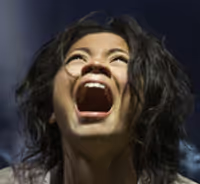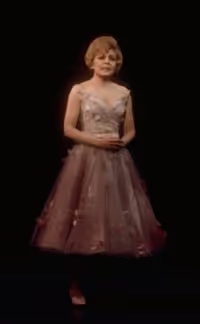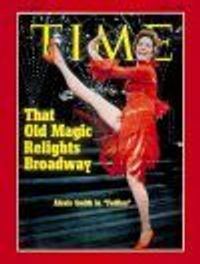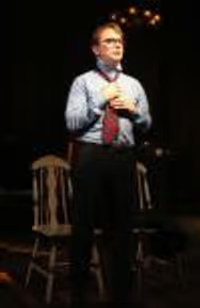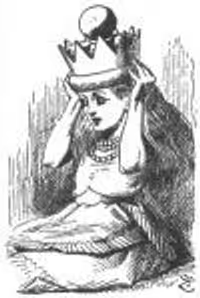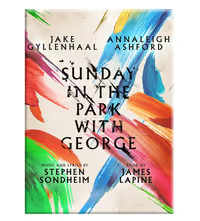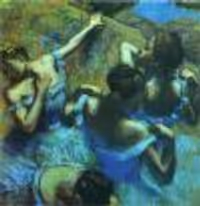Pacific Overtures previews
#75Pacific Overtures previews
Posted: 4/14/17 at 4:10am
No one can say for sure what a show is really about. There are different angles from which the material can be interpreted and a director's job is to express his in the language of theater instead of copying previous interpretations. I understand that many are disappointed because this production differs and sometimes goes against some previous productions. However, just because you want to see the story told one way, it doesn't mean the others are less valid. I'm happy to report back that what I saw tonight was gripping, creative, and ultimately thought-provoking. The set instantly gives you a wabasabi aesthetic feel. For those who don't read Japanese, especially kanji, the phrase on the set means "clear mirror, still water," symbolizing a calm state of mind. What I love most about this production is that John Doyle did a fantastic job showing how the colonial and imperialist mindsets can be inherited and carried over across cultures and generations. You also get to see the irony that the achievement of civilization in the West is in turn used to practice the barbarian logic of occupation.
#76Pacific Overtures previews
Posted: 4/14/17 at 7:43am
Thanks to Sally, justoldbill and others for differentiating between the Broadway, original off-Broadway, and current productions. (Kane, I'm afraid I also hadn't studied the cast recording well enough to know if lyrics were changed in 1984.)
I just want to add that PO already has fewer songs than any Sondheim show, with the exception of the original off-Broadway ASSASSINS. If cuts must be made to this "unfortunately rarely heard" show, the score isn't the place to look.
#77Pacific Overtures previews
Posted: 4/14/17 at 8:15am
No one can say for sure what a show is really about.
Luckily for us, Sondheim told us what it is about: "A chronicle of Japanese History, beginning with the 1853 incursion of American warships, under the command of Commodore Mathew Calbraith Perry, into Japanese waters in order to open up trade with a nation that had been closed to foreigners for centuries."
I have no problem with finding different interpretations of a show, but when you have to cut an hour from it for this interpretation to come across, I just feel like you are producing an entirely different show. If I were to Cabaret, but decided the EC and Schneider took up to much time so I cut "So What?", "Three Ladies", "Telephone Song", "The Money Song", "The Gorilla Song", "What Would You Do?", and "I Don't Care Much" is that not a completely different show than the ones Kander, Ebb, and Prince envisioned and created?
#78Pacific Overtures previews
Posted: 4/14/17 at 8:30am
Of course it is, Sally, as Fosse proved all too well with his film version (IMO at the time, one of the best American movie musicals ever made).
In addition to thanking you for all your contributions here, Sally, I'd like to add how proud I am that so many posters at BWW know what the hanamichi is! I didn't learn the term until grad school in the early 1990s.
#79Pacific Overtures previews
Posted: 4/14/17 at 10:21am
Sally Durant Plummer said: "Luckily for us, Sondheim told us what it is about: "A chronicle of Japanese History, beginning with the 1853 incursion of American warships, under the command of Commodore Mathew Calbraith Perry, into Japanese waters in order to open up trade with a nation that had been closed to foreigners for centuries.""
Well, I can assure everyone that that's what the Doyle production is about, too. :) (Although, as I admitted in the earlier post, "Next" has been over-cut in a way that limits the historical perspective to some extent.)
#80Pacific Overtures previews
Posted: 4/14/17 at 10:50am
I had never seen PO before so was throughly delighted with this current production last night - instead of dwelling on what it's not, just go and enjoy this lovely production in this intimate space
#81Pacific Overtures previews
Posted: 4/14/17 at 10:50am
Respectfully, I would argue that this production is more about Manjiro, Kayama, and their relationship than it is about all of Japan. Admittedly, Sondheim does follow up that quote by speaking specifically about the two, but as the space given of the two topics suggest, Manjiro and Kayama only make up half of the musical's content. In this production, it's almost 80%, which makes the detours of "Someone In a Tree" and "Please Hello" harder to justify. The songs are needed, but the impersonal tone (relative to the two "protagonists"![]() doesn't mesh anymore with the show as a whole.
doesn't mesh anymore with the show as a whole.
Gaveston, I must admit I don't know that word off the top of my head, but I do know what it means and, having studied kabuki (albeit briefly and not very in depth), its connotations. Normally I substitute the less correct word "runway", haha!
Wayman_Wong
Broadway Legend Joined: 4/22/04
#82Pacific Overtures previews
Posted: 4/14/17 at 12:24pm
There are only 10 songs in ''Pacific Overtures,'' so if you HAVE to cut one, it makes sense to cut the ''problematic'' ''Welcome to Kanagawa.'' And who thinks it's ''problematic''? Sondheim himself. In his book of collected lyrics, ''Finishing the Hat,'' he writes: ''This is the most annoyingly problematic song I've ever written. With each revival of 'Pacific Overtures,'' I rewrite it and with each revival, it fails to be funny... The pornographic sections lie there like lumps of dough. ... In any event, I'm open to suggestions.''
By contrast, in the same book, Sondheim calls ''Chrysanthemum Tea,'' ''my favorite kind of song to write, since it appeals to my fondness for puzzle-solving, not only verbally but dramatically.'' Besides the version we all know, he includes the original one that was cut out of town. ... One can only assume Doyle dropped ''Tea'' (with Sondheim's OK) because it didn't fit DOYLE's vision.
#83Pacific Overtures previews
Posted: 4/14/17 at 3:34pm
I am so heartsick to hear these comments about PO. While it is not my favorite Sondheim show (I've been watching it since its tryout in Boston in 1975), it sounds as though Doyle has eviscerated the show. And I love watching the original on youtube. Hoping that Weidman can effect some changes on what Doyle has wrongheadedly wrought.
Mekroth
Broadway Star Joined: 2/23/08
#84Pacific Overtures previews
Posted: 4/20/17 at 9:35pm
Has anyone seen it recently? Any changes/improvements?
#85Pacific Overtures previews
Posted: 4/20/17 at 10:34pm
I was there tonight. First, I have to say that Doyle's productions of Sweeney and Company were some of my first Broadway experiences and I loved them. I have not admired all of his bare-bones revivals, but when they work, they can be brilliant.
Pacific Overtures is one of my favorite scores, and I couldn't wait to finally see it onstage. I so looked forward to putting the music in context, and having a full experience with the piece. I have seen most of the pirated Japanese broadcast of the original, but that's hardly the same thing as seeing a live production.
But this production is one of the most complete misfires I have ever witnessed. I truly don't think it's the material's fault.
I actually can't bring myself to get into deep specifics right now (as if there were specifics to be discussed), but to chip in, there is absolutely no justification to cut "Chrysanthemum Tea." The 90 minutes felt like three hours to me. Having that very dramatic, amusing, brilliantly crafted earworm early in the evening would have actually helped the pace. Sondheim knew what he was doing.
I don't know where to start with the leaden direction and design. This isn't elegantly simple, it's just not doing the show. The modern dress, to my eye, looked like it was mostly from Uniqlo. Maybe a post-"Next" comment on Japan/America commerce and relations? That's the best I can muster. Hardly an excuse to NOT HAVE COSTUMES in a show that keeps asking us to differentiate different characters in different times. (And that was conceived to be performed in Kabuki, for Christ's sake.)
The cast is excellent, and I feel especially bad for George Takei, who turned 80 today. I'm glad that he has come back to New York to try his hand at another piece, and I always enjoy seeing him. But he's ad rotten luck. Allegiance was an enthusiastic and sincere enterprise that couldn't get past its lousy writing. This, on the other hand, is a brilliantly conceived piece now done in a completely dead way.
#86Pacific Overtures previews
Posted: 4/20/17 at 10:50pm
To be fair, I do think that Doyle had a fairly clear idea of what he wanted in this production, and it can be unraveled. But I'm not interested enough to contribute to that conversation right now. The sacrifices made to get there were fatal for the show, in my opinion.
Updated On: 4/20/17 at 10:50 PM
Chistery88
Swing Joined: 10/4/16
#87Pacific Overtures previews
Posted: 4/21/17 at 12:07am
Can anyone who is going or went already take a pic of the stage/seats. I'm trying to figure out where I want to sit. Thanks in advance
#88Pacific Overtures previews
Posted: 4/21/17 at 9:43am
Anywhere is fine in that small space. I would aim toward the center of either side.
#89Pacific Overtures previews
Posted: 4/21/17 at 1:48pm
I saw it. I enjoyed it. I don't know Pacific Overtures very well (although I had seen it before this production), and it's a show that I struggle to have affection for the way I do the rest of Sondheim's work, both emotionally and intellectually. I think it's a challenging show that has some great moments, and is really really smart. I think there are bits in this production that could stand to be cleared up through their preview process, and have every reason to believe they will be, because it's still early. I'll openly admit that I don't know the show well enough to have strong feelings on the cuts; I can't say I did or didn't miss anything, since it's been 13 years since the last time I saw the show. But I can say that I think textually this version worked. It is compact, but I did not feel that I was aching for more. Visually it's simple and conceptual and I actually did not expect him to take that route on this show, but as ever, I thought that it made sense.
Also like, not for nothing, but it's very Doyle. It's been over ten years of people bitching about him. You know what you're signing up for by this point. Visually you're not going to get your museum. Textually, maybe not what you're used to. If it's not your bag, don't go. Wouldn't you rather not see one production of a show than like, have your heart shattered if that's what a revisal is going to do to you? Not targeted at anyone in specific, just generally responding to this thread and to comments I overheard IRL. I'm just tired of people moping about how he ruined their shows because they didn't get their traditionalism when when has John Doyle ever been a (certain kind of) traditionalist? (Fact is he actually IS deeply traditional in a lot of ways if you're willing to look at the big picture, just not the ways a lot of musical theater people think of it.)
Re seating, it's alley style and the set is very simple, so I'd think your view should be fine anywhere you sit.
Also, just because you can't find justification doesn't mean the director doesn't have it. Both in defense of John and as a "that's a silly thing to say."
And that is me making a post proving that I have not changed in 10+ years.
#90Pacific Overtures previews
Posted: 4/21/17 at 1:55pm
Apparently CSC has been getting calls from people who are hearing of how drastically rethought this production is and who are asking for refunds.CSC is being gracious in allowing them.
Perhaps, they should have advertised this in advance as a "new, reimagined" adaptation of the show.
#91Pacific Overtures previews
Posted: 4/21/17 at 2:04pm
QueenAlice said: "Apparently CSC has been getting calls from people who are hearing of how drastically rethought this production is and who are asking for refunds.CSC is being gracious in allowing them.
Perhaps, they should have advertised this in advance as a "new, reimagined" adaptation of the show.
Or maybe just add Chrysanthemum Tea back into the show? I mean, how difficult would it be to add that song back in? They're still in previews. Just give the song to Ann Harada and everyone will be happy.
#92Pacific Overtures previews
Posted: 4/21/17 at 2:04pm
Yeah, I overheard some unahppy people. I suppose advertising it differently could've been useful, but in CSC's defense, they have sent numerous e-mails (and send you more if you have tickets) that clearly state it's 100 minutes with no intermission. If you know the show well enough to be like, irate about changes to the libretto, then "100 minutes, no intermission" should probably tip you off that it's different. (Or maybe people just don't read.)
And lol, no, he's not going to add the song back into the show to make a few would-be patrons happy. That is literally the opposite of everything he stands for. And luckily as Artistic Director, well, he can do whatever he damn well pleases.
#93Pacific Overtures previews
Posted: 4/21/17 at 2:08pm
I'm wondering if maybe our differing reactions to this production correlate closely with our previous engagement with Pacific Overtures. I maintain that it was a very compelling piece of theater, but I can see why others would be quite bothered by the cuts and the stylistic changes.
Imagine Doyle or someone like him, in thirty years or so, directing a production of Next to Normal that has been cut to 90 minutes by getting rid of all of the Natalie-Henry material. It would just the the story of Diana and her core family members. I can imagine that such a production might seem quite good to someone new to the show, but it would surely be outrageous to those of us who loved the original. I'm thinking this production of Pacific Overtures might be something like that.
#94Pacific Overtures previews
Posted: 4/21/17 at 2:09pm
I keep finding in recent seasons that people (and often the artists themselves) are quick to call criticisms of a minimalist or radically overhauled production "traditionalist," like the dissenters are automatically a bunch of unimaginative stuffy old museum curators. It's often a very easy way to dismiss any notion that the take actually doesn't work.
#95Pacific Overtures previews
Posted: 4/21/17 at 2:14pm
Like, Doyle's Sweeney Todd really worked for me even though I knew what the original was. This didn't work at all for me as an evening of theater. And judging by the number of entirely closed eyelids across the stage, well...
I'm glad that some others were able to take more away from the experience. This is the disappointment of the season for me.
#96Pacific Overtures previews
Posted: 4/21/17 at 2:14pm
kdogg36 said: "I'm wondering if maybe our differing reactions to this production correlate closely with our previous engagement with Pacific Overtures. I maintain that it was a very compelling piece of theater, but I can see why others would be quite bothered by the cuts and the stylistic changes."
Absolutely. I have actually always thought a version of that rings true of experiences with him in general. His Company was my first Company. It will be, for the rest of my life, my definitive production of Company, and at this point I have seen nearly half a dozen others. But a lot of people who had different prior experiences with the show, and held other versions very, very very dear, struggled with how John re-imagined it. I always thought that, at least in some cases, the people who embraced John's work, particularly on Company and Sweeney the most were those who were most open to something radically different because we didn't know any better; without a frame of reference, you're more apt to accept something like that. That is far from something I am willing to argue is a rule because I personally know plenty of people who don't fit it. Plenty of people who know those shows up and down and back again for days LIVED for what John staged. But I think it is a pattern.
#97Pacific Overtures previews
Posted: 4/21/17 at 2:23pm
Scarywarhol said: "I keep finding in recent seasons that people (and often the artists themselves) are quick to call criticisms of a minimalist or radically overhauled production "traditionalist," like the dissenters are automatically a bunch of unimaginative stuffy old museum curators. It's often a very easy way to dismiss any notion that the take actually doesn't work.
Sorry, I think you misunderstood me, and also sorry if I wasn't clear. I'm not calling Doyle's minimalism traditionalist. The thing itself is not; it's usually a pretty radical departure from the "tradition" as far as original productions and revivals before him. I'm saying that the impetus behind the way he directs, reimagines, etc., and the thought and theory behind it, does come from a very very traditional place. Like Ancient Greek traditional. I say this as an artist and as someone who loves Doyle's work more than she has loved almost anything else on this planet. But I also say this as someone who devoted years to studying his work, learning about it from him and his colleagues, and has spent a decade watching 90% of what he has staged in every corner of this country. I am not just saying it to wave away criticism of something I enjoyed.
(I do think a lot of criticism of his work comes from people who are purists in a stifling way, but not all. And I don't use "traditionalist" as an insult, and I have seen criticism of his work that's valid; the point is that it does not always work for everybody, and in that vein, I do maintain that if traditional is what you want, a John Doyle production is probably not for you.)
#98Pacific Overtures previews
Posted: 4/21/17 at 2:26pm
Doyle has done several productions I really enjoyed- Sweeney and Company amongst them.
He has also put on some productions that are intensely misguided- such as his recent Peer Gynt.
His style does not fit everything. When it works, it works. When it doesn't, it seems like he is putting his vision over the intention and statements over that of the writers'.
#99Pacific Overtures previews
Posted: 4/21/17 at 6:11pm
Sally Durant Plummer said: "If I were to Cabaret, but decided the EC and Schneider took up to much time so I cut "So What?", "Three Ladies", "Telephone Song", "The Money Song", "The Gorilla Song", "What Would You Do?", and "I Don't Care Much" is that not a completely different show than the ones Kander, Ebb, and Prince envisioned and created?"
They did cut a lot of songs for the Cabaret movie and it was very different than the show, but were people howling about how "wrong" the interpretation of Fosse was in his (Oscar-winning) film like they are here because it was different than the original? It's kind of a silly to use Cabaret as an example, because it proves an altered interpretation of the musical can be artistically valid and no less true to the intent of the original story. And I can't think of the last time I heard "The Telephone Song" in a production of Cabaret.
I was familiar with the score, not the show. I love Chrysanthemum Tea, but I didn't miss it in this production.
I also find it odd there are repeated complaints about adding female actresses to the show. The production is not done in the kabuki style, so there's no reason to exclude women from playing female roles. Even so, it's not actually 1853 and the shogunate isn't going to punish CSC for putting a woman onstage. (I can't believe I need to justify the inclusion of women in theatre in 2017.)
Wanting life but never knowing how
Videos


